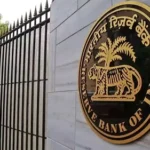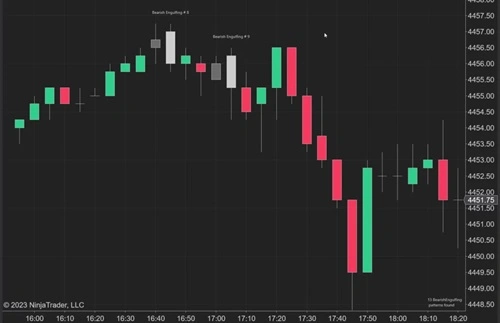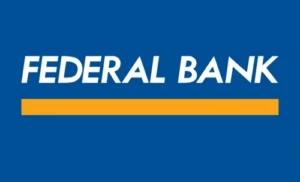Can you imagine a solid, well-established business model that spits out consistent dividends and is typically known for being a slow and steady tortoise, rather than an unpredictable hare in the economic race? That’s what investing in banks can feel like, and the craze for that is quite understandable. But, just like anything else in life our banking investment story also has its share of twists and turns.
Sometimes, these risks can come disguised as economic downturns, or sneak up on you as changes in the regulatory landscape. So, does it mean you should cross off banking from your investment list and look elsewhere? Well, worry not because we are about to unpack just that. Here we will be diving deep into the possible advantages and disadvantages of investing in banks. So let’s get down to it then, shall we?

Advantages Of Investing In Banks
Let’s first start off with the pros or advantages of investing in banks:
1. Profitability and Dividends
Banks are like well-oiled money-making machines. Think about it, they’re making bank (pun absolutely intended) from interest on loans, fees for all sorts of services, and even returns from their investments. And when their incoming cash starts beating their operational and financial costs, that’s where the profit comes in. It’s like a fun game of financial tug-of-war, where we, the investors, get to cheer from the sidelines. And the best part? Banks love sharing the winnings with their shareholders in the form of dividends. So, not only can you see your investment grow, but you’ll also get a regular income stream. It’s like getting a paycheck just for investing, which is pretty awesome, right?
2. Regulatory Oversight
Banks may seem scary with all the strict regulations they have to follow. And yeah, it can be a bit of a pain for them. But, for us investors, it’s more of a protective shield. These regulations keep things stable and reduce the risk of the bank going belly up. Plus, there’s this thing called the “too big to fail” concept that often applies to mega banks. It basically means that the government would step in to stop them from crashing and burning, all to avoid messing up the entire economy. It’s like having a super safety net ready to catch you if things go south.
3. Interest Rate Environments
Let’s talk about interest rates. These can majorly affect how profitable a bank is. When interest rates are on the up, banks are partying because they can charge more on loans, and that difference between what they earn from loans and what they pay on deposits, the spread, gets wider. That’s a lot more money in their pockets, and potentially yours as well. And guess who influences this? The Federal Reserve with its monetary policies. They’re like the puppet master controlling the show.
4. Technological Innovations
In this age of technology, banks that are not hopping on the digital train are seriously missing out. Banks are starting to act like tech companies, offering smooth online banking services, using advanced algorithms for assessing risk and boosting efficiency. It’s all about adapting to the digital world, and the ones that are successful in doing this can really get ahead in the game and increase their profits. So, investing in a bank that’s technologically innovative is like betting on a strong horse in a race.
5. Diversified Revenue Streams
Banks don’t just focus on one area to make money; they have a bunch of different revenue streams, which is really smart if you think about it. They make money from retail banking (that’s us everyday people), commercial banking (businesses), and wealth management. This kind of diversification spreads out the risk and provides a buffer against downturns in any specific sector. It’s like having different streams of water filling up the same pool. If one stream dries up, the others are still flowing.
Disadvantages Of Investing In Banks
And now it is finally the time to see the flip side of the coin.
1. The Risky Business of Regulations
Sure, banking regulations can mean a steady ship in stormy waters, but it also has a flip side. Changing rules can hike up compliance costs or demand a total makeover of a bank’s game plan. And if they slip up? Massive fines and a tarnished name could be in the cards, which would be a serious punch to the gut for any bank’s wallet and image.
2. Economic Sensitivity
Banks are like those friends who are overly sensitive to, well, everything. When the economy is in the pits, they’re first in line to feel the burn. More loan defaults and foreclosures can come knocking, which could mean big losses. These financial mood swings can seriously dent a bank’s earnings and, as a result, give their stock price a real kick in the teeth.
3. Operational Risk
Banks also have to dodge operational landmines. Think tech glitches, crafty fraudsters, and cyber criminals. If these threats become realities, the financial hit can be massive, not to mention the dent in their street cred, which can seriously devalue their stocks.
4. Interest Rate Risk
Sometimes, certain interest rate scenarios can be a real win for banks. But when the rates are low or the yield curve flips on its head, the banks’ net interest margins can get squashed, leading to reduced profits. The yield curve, showing the gap between short and long-term interest rates, is a big player in the banking profit game.
5. Competition and Market Disruption
With the rise of fintech companies and flashy new Neobanks, traditional banks are being forced to step up their game. These disruptive dudes use technology to deliver banking services in slicker, more user-friendly ways, which is giving the old guard a run for their money. Banks that can’t keep pace with this new breed could see their market share slipping away.
Conclusion
There you have it. Now with this information at your disposal, you’ll be able to decide whether investing in banks is your thing or not. When investing in banks, people often overlook the disadvantages, but thankfully, you are not making that mistake.



















